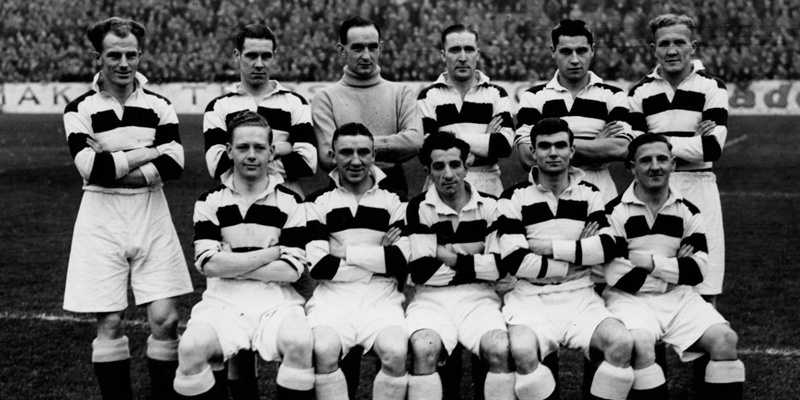Emilio Pacione, who was Dundee United’s oldest surviving player, has died at the age of 92.
The small and speedy winger tormented opposing defences for the Tannadice team for five seasons after the war and scored more than 30 goals.
He retained a lifelong affection for the club and was honoured three years ago when he was invited to open Dundee United’s centenary exhibition.
Mr Pacione was born and raised in Dundee, his parents having moved to the city from Cassino in Italy.
One of 13 children, one of his younger brothers was Sid, who played left-back for Aberdeen and Hibs and later became assistant rector of St John’s High School in Dundee.
The family’s home was in the Hawkhill area where their father Giovanni ran an ice-cream parlour.
The young Emilio went to St Joseph’s and St John’s schools. His first job was helping in his father’s shop.
Football was his passion, however, and he played for his schools and then Ashcliff juveniles, which saw him being capped for Scotland.
Junior side Lochee Harp was his next team and his impressive performances there captured the attention of Dundee United, for whom he signed in 1945.
His first match was as centre forward against Stenhousemuir and he scored twice in a 7-0 win as senior football in Scotland restarted after the war.
In the following full season he moved to the right wing and scored nine times in 23 games. In 1947-48 he netted eight goals from 31 games and in 1948-49 he scored twice in 11 games.
His final season was 1949-50 and he scored a goal in his two appearances before being released.
Mr Pacione crossed the Irish Sea to turn out for Coleraine but after a short spell he returned to Scotland and completed his career with Brechin City.
Dundee United historian Peter Rundo, who charted the player’s career, said he was renowned as ”a wiry outside right who was skilful and knew the way to goal.”
He added: “Emilio was a good player and he is part of the club’s history.”
Mr Pacione’s son Michael said: ”Despite being short in stature he had the heart of a lion and ball skills honed in the ‘tanner ba’ era of street football and on the black ash pitches of Riverside coup.
”His most memorable game was the 1947 cup tie against Rangers when he ran rings around the then Scotland full-back Jock ‘Tiger’ Shaw and this feat was captured for posterity on a cigarette card of the day.”
Mr Pacione left the game to work in factories including Timex, Astral and NCR, from which he retired.
He leaves his wife of 64 years Evelyn, two sons, a daughter and grandchildren.
